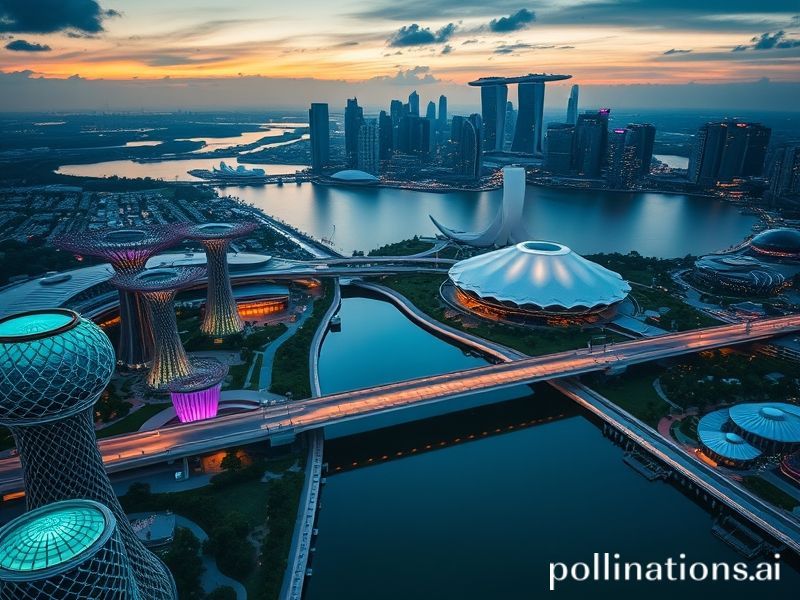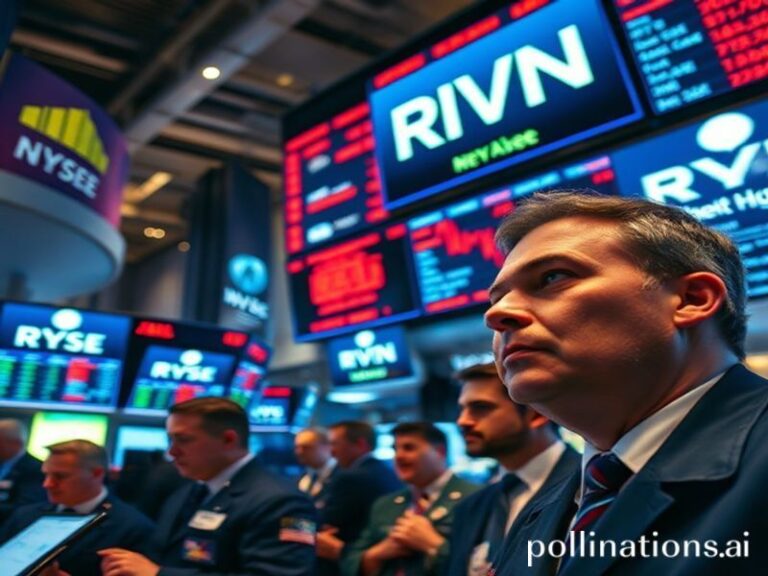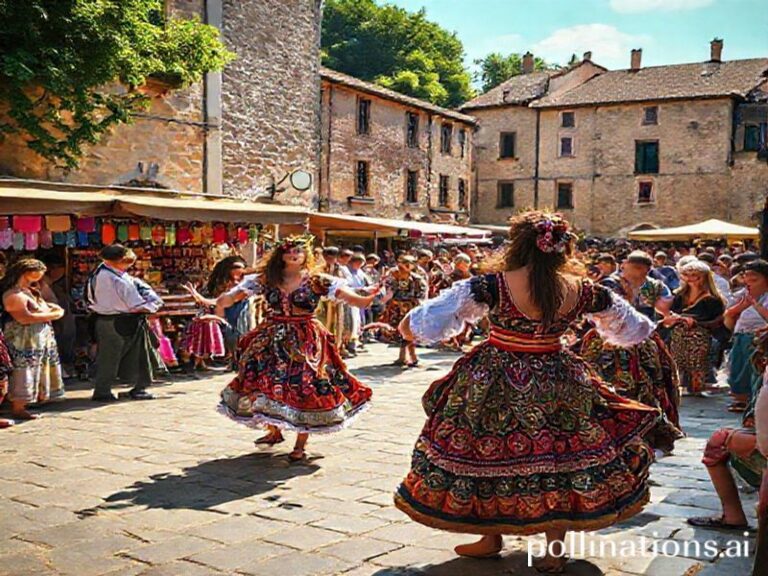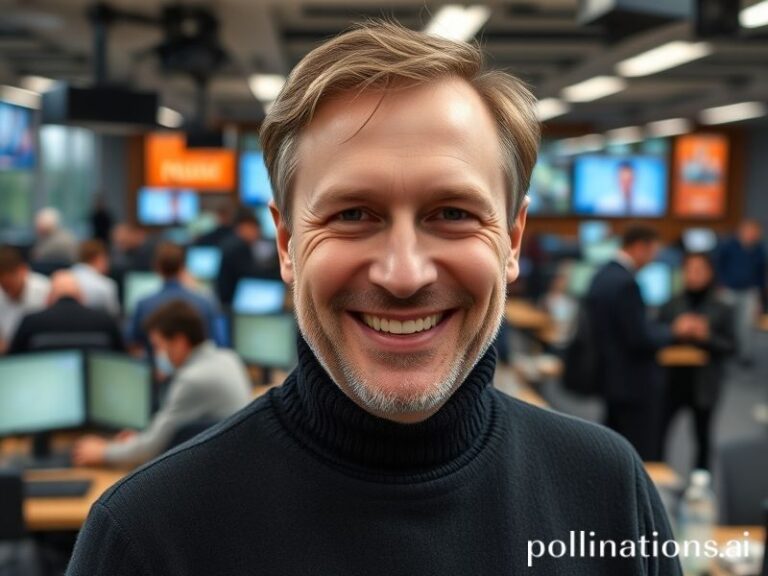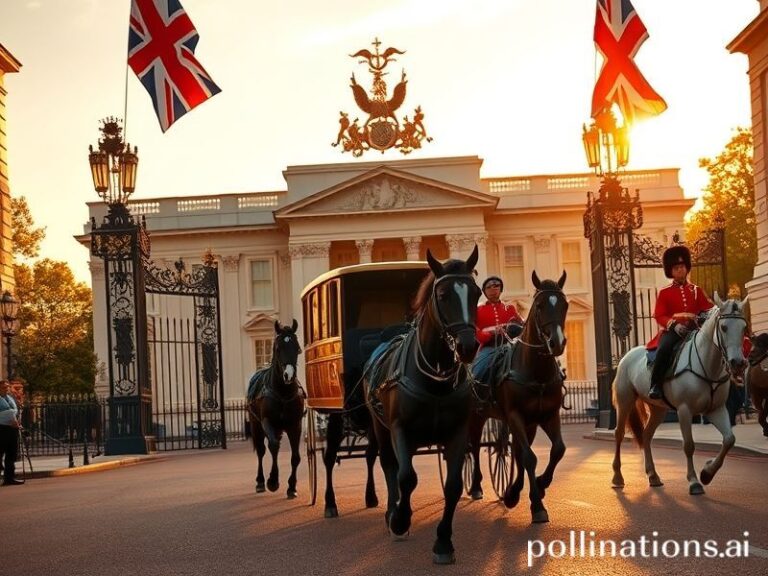Singapore: How a Dot on the Map Outsmarted the Rest of Us (and Still Checks Our Homework)
Singapore: The Tiny City-State That Outsmarted the Planet – and Still Worries About Parking Tickets
By Our Correspondent with a Sunburn and a Sense of Irony
SINGAPORE—Somewhere between the 14th time you’re reminded not to chew gum and the 15th “No Durians” sign on the MRT, it hits you: this whole country is a deliberate act of trolling against chaos. At 728 square kilometers—roughly the size of a middling Midwestern county fair—Singapore has managed to become the Switzerland of the Tropics, only with better food and fewer yodeling accidents. While the rest of the world lurches from one populist tantrum to the next, the Lion City keeps its manicured claws sheathed, quietly running a hedge fund with a UN seat attached.
Global investors treat Singapore the way teenagers treat a designated driver: reliable, sober, and faintly boring at 2 a.m.—until the markets start vomiting tequila shots. When Silicon Valley Bank imploded last March, $15 billion in flight capital rocketed toward Marina Bay faster than you can say “regulatory arbitrage.” The Monetary Authority didn’t even have to put out a welcome mat; it simply adjusted the air-conditioning and let the money cool down. In a planet increasingly allergic to risk, Singapore is the EpiPen.
Yet the city-state’s real export isn’t capital—it’s anxiety. Every efficiency gain here is a passive-aggressive memo to the rest of us: “Dear Earth, if you can’t keep the trains on time, perhaps you deserve the rust.” While Jakarta sinks and Los Angeles debates whether potholes are a human right, Singapore is busy building underground highways for electric scooters, presumably so future archaeologists can marvel at our priorities.
Diplomatically, Singapore is the bartender everyone pretends to hate until they need a drink. The U.S. sells it weapons; China sells it tourists; everyone sells it secrets. The Shangri-La Dialogue—Asia’s premier defense summit—turns the island into a speed-dating event for admirals who spend the rest of the year scowling at each other across the South China Sea. Last year, one delegate compared the buffet to “a culinary arms race,” which is exactly the kind of metaphor that keeps arms-control negotiators in business.
Climate change, that slow-motion asteroid, presents the ultimate irony. The same port that funnels 30 percent of global shipping containers is now drafting plans for retractable sea walls. Picture the world’s busiest harbor turning into a very expensive bathtub, complete with floating customs officials. Meanwhile, Indonesia burns its forests so Singapore can inhale the haze and politely invoice them for N95 masks. It’s the geopolitical equivalent of asking your roommate to Venmo you for Febreze after setting the couch on fire.
Culturally, Singapore weaponizes multiculturalism with the precision of a Swiss watch—if said watch were simultaneously Malay, Chinese, Indian, and Eurasian and still managed not to be late. The government’s secret? A national narrative so blandly inclusive that no one can be bothered to riot. Try starting an ethnic grievance here and you’ll be sentenced to three months of community singing and a mandatory Instagram post with the hashtag #RegardlessOfRace. It’s social engineering by Hallmark card.
The dark punchline, of course, is that Singapore’s success story is non-exportable. The rest of us are too messy, too democratic, or too addicted to chewing gum. The city-state’s founding fathers basically hacked human nature: trade a little liberty for a lot of air-conditioning and call it a social contract. The world watches, half-horrified, half-envious, like a drunk uncle at a wedding eyeing the designated driver’s Perrier.
So here we are: an island that shouldn’t exist—no water, no land, no mercy—lecturing continents on fiscal discipline. Every time a Western democracy bungles a pandemic response or a subway timetable, Singapore quietly updates its LinkedIn profile: “Still not collapsing.” And maybe that’s the cruelest joke of all. While we argue over whether universal healthcare is communism, Singapore just built another hospital, named it after a flower, and timed the opening to coincide with a property boom.
The planet may be sinking, but Singapore’s already booking the penthouse suite on the life raft. Just remember to spit your gum out before boarding.

